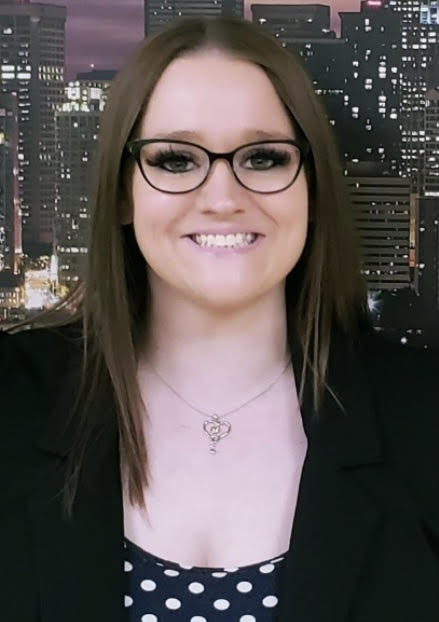When Jamie Chinnick graduated from the George Washington University (GW) School of Nursing’s Family Nurse Practitioner (FNP) program in May 2023, she had a vision…a vision for a healthcare system grounded in compassion, equity, and empowerment.
Now living in Washington state, just outside of Seattle, Chinnick is transforming that vision into reality every day as a Family Nurse Practitioner, blending rigorous clinical training with a deeply personal commitment to inclusivity and patient advocacy.
Education that Translates to the Real World
For Chinnick, the road from classroom to clinic was paved by the comprehensive, evidence-based education she received at GW.
“Absolutely, what I learned in class directly applies to my work,” she said. “From analyzing and applying evidence-based research to making clinical decisions, my education gave me the tools to ensure that patient care is both safe and effective.”
One area where her GW education shines is in pharmacology, where a solid grounding has allowed her to prescribe and monitor treatments with confidence. Additionally, clinical decision-making frameworks honed during her coursework ensure that she approaches each patient holistically, considering every relevant factor.
Just as importantly, Chinnick emphasizes patient education — an often-overlooked yet vital part of healthcare — using the communication strategies she studied to empower patients in their own health journeys.
A Calling to Do More
For Chinnick, becoming a nurse practitioner was not just a career choice; it was a calling to have a deeper impact in primary care.
“My role allows me to diagnose, treat, and educate while building lasting, trusting relationships with patients,” she said. “Shared decision-making is at the heart of my practice. I want patients to feel empowered and heard, and I aim to be a provider who advocates for them every step of the way.”
Chinnick believes healthcare should be a partnership, where providers meet patients where they are — emotionally, culturally, and physically — and walk alongside them on their health journeys.
GW: A Foundation for Advocacy
While Chinnick’s experience at GW was largely positive, it also helped her identify areas where the healthcare system — and healthcare education — can grow.
“I would have appreciated more focused training in areas like gender-affirming care and obesity medicine,” she noted. “But the program’s strong emphasis on recognizing and addressing health inequalities challenged me to look beyond clinical symptoms and consider the broader factors impacting patient outcomes.”
GW’s FNP program instilled a commitment to evidence-based practice, cultural competency, and patient-centered care that Chinnick carries into every interaction with her patients. It also inspired her to think bigger — to use her role not just to treat individual patients, but to advocate for systemic change.
Passion and Purpose
Outside of her clinical work, Chinnick is passionate about her family, her community, and the causes she champions. She wants to help build a future where her children — and all children — feel safe, confident, and respected when they seek healthcare, regardless of background or identity.
Two areas stand out as particular passions: obesity medicine and gender-affirming care for LGBTQIA+ individuals.
“In obesity medicine, I work to shift the narrative away from stigma and blame, and toward compassion, science, and support,” she said. “Obesity is a complex, chronic disease—not a character flaw. Patients deserve care that empowers, not shames, them.”
Similarly, Chinnick is fiercely committed to providing safe, affirming care for LGBTQIA+ individuals, many of whom have historically faced discrimination or misunderstanding within the healthcare system.
“My goal is to create a space where every patient feels validated, heard, and cared for,” she said. “Healthcare should be a sanctuary, not a source of fear or judgment.”
Revolutionizing Healthcare, One Patient at a Time
For Chinnick, revolutionizing healthcare isn’t about grand gestures or sweeping reforms — it’s about making an impact, patient by patient, conversation by conversation.
As a primary care provider, she is often the first — and sometimes only — point of contact for many patients in underserved communities. She works tirelessly to bridge gaps in care, reduce barriers to access, and promote prevention and education.
“Health literacy is crucial,” Chinnick said. “I advocate for patients to truly understand their conditions and treatment options. Empowered patients make better health decisions, and trust between patient and provider is the foundation of everything.”
Her vision for the future of healthcare is one where providers treat the whole person, not just the symptoms, and where access to quality, compassionate care is a universal right, not a privilege.


